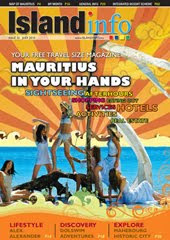
Last post we left Alan seemingly jobless in the UK, after 50 years of dedication to teaching and teacher training. What follows next is a story of determination and perseverance that should be an example to us all. Read part 1 of The Life & Times of Alan Grihault).
Having been refused further employment by DfID (Department for International Development) because he was over 60, Alan received a further blow when an Indonesian Educational Project with Cambridge Education ended, due to
For the next 6 months Alan and his wife Sara lived in
Back in
Once settled on the island, Alan’s priority was to find a publisher for his book. This was easier said than done. The first publisher took 3 months to decide whether or not they would publish and the second said they would publish, but in black and white. Finally, lucky number three took only 2 days to decide that they would publish.
Did I say lucky? Two Christmases and nineteen months later the book was ready for printing, with Alan having worked at the printers many times and helped with the page layout himself. It was, to say the least, “a terrible and frustrating experience!” Finally, the owner of the company admitted that he could not print the book himself, but that another printer could, on Sundays...
So, one Sunday 1000 copies of the book were printed and 50 were bound. Alan bought all 50 but, upon receiving them, he stopped his cheque as the book was a complete mess. Now, unbeknown to Alan, stopping cheques is illegal in
In the mean time another printer, Mr Michel Coquet of IPC limited, had gone through the book page by page and highlighted all the printing errors. Following an acrimonious meeting with the original printer Alan was offered the other 950 books for Rs150 each, but as they were of such poor quality and unsellable, Alan refused.
Michel came to the rescue. The dodo is an integral part of Mauritian history and he wanted to make his mark by printing and publishing the book himself and leaving something for posterity.
The whole debacle turned out to be something of a blessing, as the delay allowed Alan to conduct further research and he was able to re-write the book including the latest information. It is now a book that he is justly proud of. Alan also wrote two other small books during this period, “How to Get a Job” and “How to Study and Pass Exams”.
Alan has also ventured into the arena of broadcasting. The Mauritian Broadcasting Corporation (MBC) broadcast the
Although the series was of excellent quality it was, inexplicably, never aired. A pity for, as Alan notes, radio is an excellent format for teaching children as it stimulates the imagination and creativity. In contrast, television has a hypnotic effect and evidence suggests that it may actually retard early brain development.
Despite this unexpected turn of events, Alan continued to work with the MCA and produced ten new stories, this time for television. He also presented a new Maths series called ‘Maths Alive’. Alan felt that children didn’t want to switch on their television sets and see the same sort of mathematics as they had been doing in their classroom. They wanted to see something lively and in real life situations. The series was a tremendous success and Alan has become a mini-celebrity amongst young children. Alan has also presented many science programmes such as “Science is Fun”, and a new venture is a couple of programmes on ‘Pirates’.
The President’s Fund for Creative Writing in English, was another excellent project that Alan has worked on since “retirement”. It consisted of regional workshops with primary school teachers, instructing them how to teach creative writing through storytelling, poetry and drama. The scheme was very successful and participants benefited enormously from the experience. Alan would dearly like to do more!
The success of “Dodo – The bird behind the Legend” prompted Alan to write his next book, “Solitaire – The Dodo of Rodrigues Island”. Published in 2007, it is about the dodo’s cousin, another extinct bird, and is a very interesting read.
Now 72 years old, Alan can be an inspiration for us all. He still runs regularly and is at present Grandmaster of the Mauritian Hash House Harriers. He has spent the last three years researching the pirates and treasures of
Alan’s website is: www.dodosite.com
© Islandinfo




No comments:
Post a Comment
Write your comments